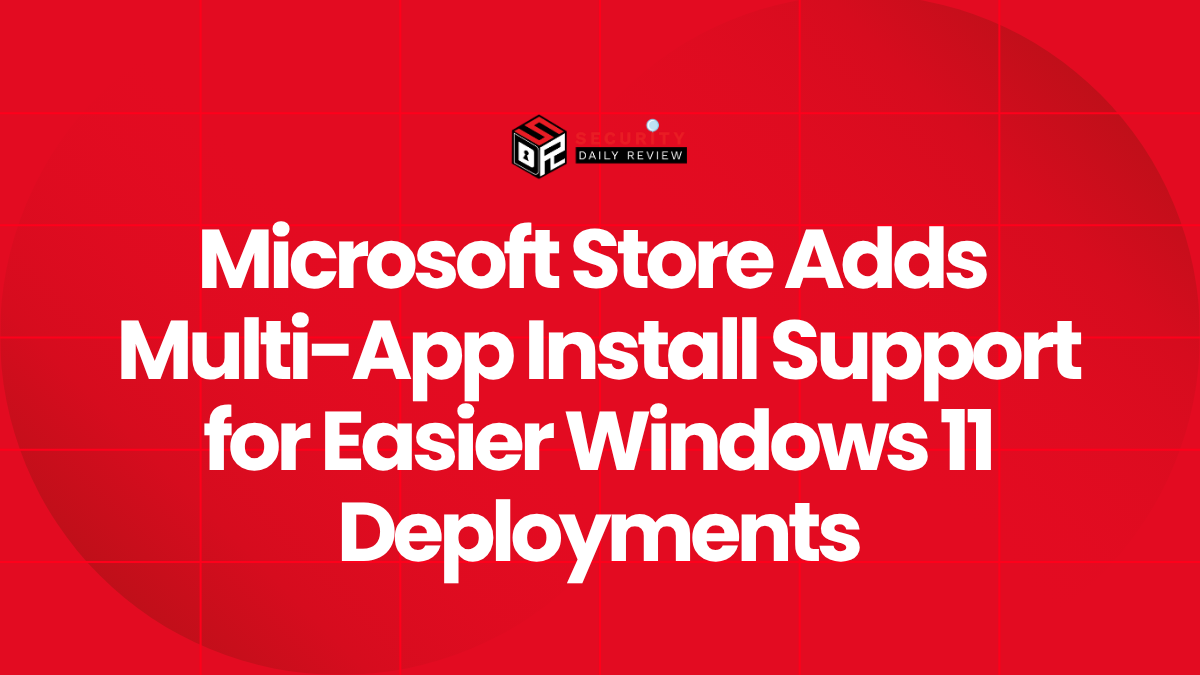Microsoft has introduced a new feature to its web-based Microsoft Store that allows users to generate a single installer for deploying multiple applications on Windows 11 devices. This change aims to enhance usability and streamline both personal and enterprise-level application deployments. Although the announcement has flown under most radars, it signals Microsoft’s ongoing efforts to modernize software delivery mechanisms while reinforcing application security and integrity.
Microsoft Store Enhancements Offer Improved Deployment Flexibility
Microsoft’s latest upgrade to its Store platform provides support for bundling applications into a unified package, which can then be downloaded and installed through a single executable. This feature is particularly enticing for systems administrators and cybersecurity teams who manage fleets of Windows 11 devices, as it reduces time spent installing and configuring essential application stacks.
Simplified Application Bundling for End Users and IT Teams
The store’s new bundling system works through the web interface. Users can multi-select apps they wish to install and export them into one package. When opened on a Windows 11 machine, the installer automatically proceeds with downloading each selected application from official Microsoft Store sources.
The new feature includes the following capabilities:
- Selection of multiple apps directly in the web-based Microsoft Store interface
- Generation of a “.msix” or similar installer to deploy all selected applications at once
- Integration with Windows 11’s native app deployment framework for secure installation
While this feature clearly improves the user experience, especially for developers and power users who frequently configure new systems, it also holds promise for security-conscious organizations focused on locking down application sources and avoiding unauthorized installations.
Security and Scalability are Key Drivers
This bulk installation functionality may appear user-experience focused at first glance, but it also intersects meaningfully with application security priorities in enterprise settings. By funneling multiple app installations through a single Store-backed method, Microsoft ensures:
- Apps are verified and vetted by Microsoft’s Store publishing requirements.
- Functionality aligns with the Microsoft Installer and Windows Package Manager (also known as `winget`), reducing malware risks.
- IT teams can provision devices with pre-approved software stacks without compromising on delivery integrity.
From a scalability standpoint, the multi-app installer is especially helpful during initial onboarding. Delivering a predictable, secure, and efficient installation experience cuts costs, reduces errors, and boosts cybersecurity hygiene by eliminating shadow IT risks.
Implications for Enterprise Environments and App Management
Enterprises can align this development with broader application lifecycle management strategies. By pre-configuring install bundles for different business units—whether developers, sales teams, or remote workers—IT departments can ensure compliance, streamline provisioning, and limit administrative overhead.
Additionally, Microsoft’s move reinforces its broader vision of making Windows 11 deployment more modular, flexible, and cloud-aware. When combined with other tools such as Intune, ConfigMgr, or `winget`, organizations can develop comprehensive deployment processes leveraging official app sources.
Aligns With Broader Trends in Secure Package Management
This feature rollout follows an industry-wide push towards centralized, curated application delivery platforms. By reducing user reliance on ad hoc downloads and third-party repositories, Microsoft reduces risk exposure related to:
- Downloading malicious installers from untrusted websites
- Version mismatches or outdated dependencies
- Improper software licensing or configuration errors
In this way, the Microsoft Store’s multi-app installer advances both usability and secure software distribution goals in a single move.
What Happens Next
While the feature is currently only available via the web-based Microsoft Store , it lays groundwork for future improvements, such as:
- Editable install bundles tailored to user roles
- Integration into automated deployment pipelines
- Support for enterprise-specific app catalogs or private stores
Microsoft has yet to formally announce enterprise management tools explicitly tied to this new feature, but its natural integration into Windows 11’s architecture makes further developments likely.









